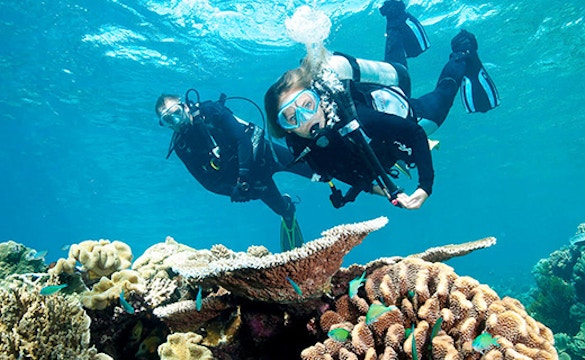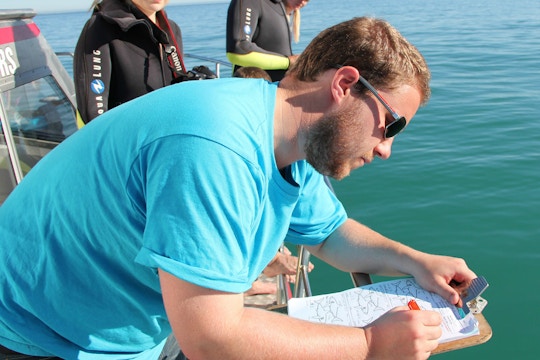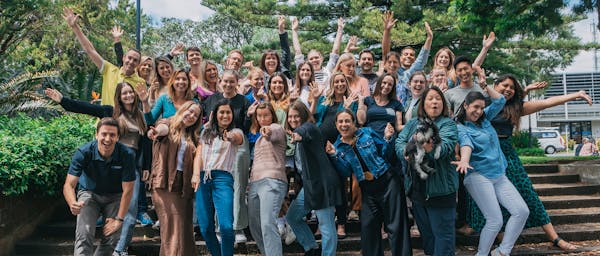I feel I have gained a deeper insight into Sri Lankan culture and made a valuable contribution to the volunteer project by working with and supporting the turtles and the team who care for them. I would tell anyone who is hesitant to join that there is no need to be hesitant at all! You will have so much fun and learn so much, I cannot recommend it enough.
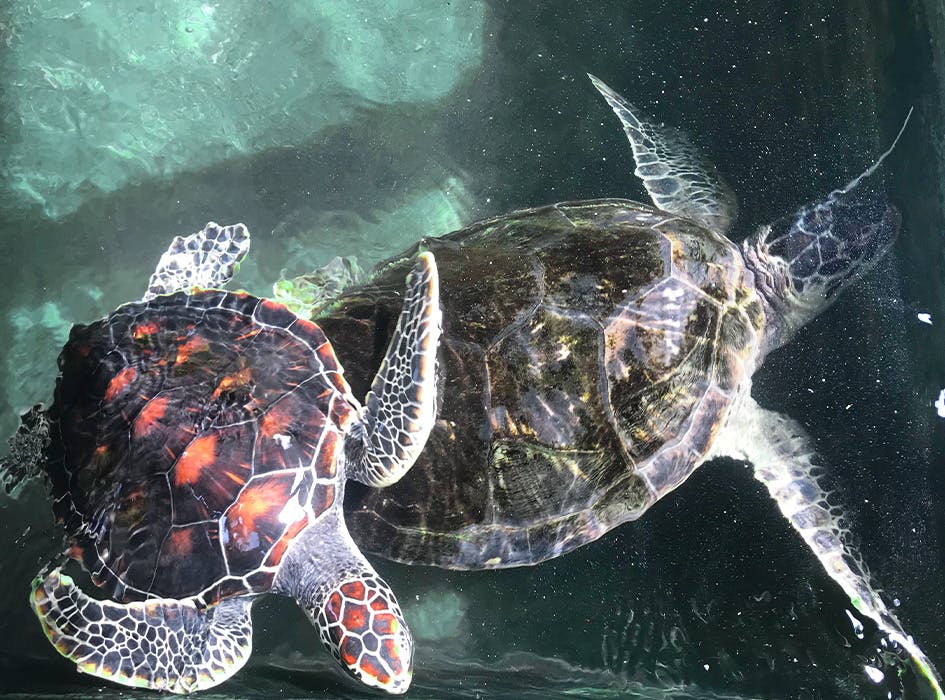
Sea Turtle Conservation Volunteer Program in Sri Lanka
Purpose
Start dates
Duration
Volunteer hours
Age
Accommodation
Who is going?
Group video calls
Once you have secured your place, join regular video calls to meet your Program Manager and other volunteers before your trip.
This program is ideal for:
This project is open to all volunteers with an interest in conserving sea life and is well suited for those who are prepared to work hard and don’t mind getting dirty.
Project details
Want to be a Sea Turtle Conservation volunteer in Sri Lanka? International Volunteer HQ’s Sea Turtle Conservation project gives volunteers the chance to help rehabilitate injured turtles and boost conservation around the southern coast of Sri Lanka. Volunteers will gain conservation and reptile care experience while assisting with a wide range of tasks that contribute to the goal of increasing the turtle population in the area so these incredible creatures can thrive well into the future.
What to expect and how you'll make an impact
The Indian Ocean is a popular area for sea turtles to live and breed in, however the turtle population in coastal areas is struggling to combat the effects of climate change and human development. Volunteers can assist with conservation efforts that contribute to the overarching goal of increasing the turtle numbers in the area.
On the Sea Turtle Conservation project you’ll be based in the town of Ambalangoda, volunteering on conservation projects that are certified by the Sri Lankan government. In fact, there are 22 turtle conservations in Sri Lanka and we have the only government certified project which does not allow tourist visits only for our volunteers.
Your focus will be caring for turtles and promoting conservation and recycling awareness in the local community. Your tasks can include:
- Cleaning turtles and their tanks
- Sourcing and preparing food
- Feeding the turtles
- Assisting with beach cleaning
- Maintaining hatcheries
- Relocating eggs to protect them from predators
- Releasing hatchlings
Duties are often seasonal so will depend on the time of year you’re in Sri Lanka. It’s important to be flexible and open to helping wherever it’s required.
The local team are very enthusiastic about the project and do require volunteers to also be passionate about helping turtles. It’s important to be open minded and willing to get involved in the day to day tasks. This can include handling and cutting fish to feed the turtles, outdoor physical work and other hand ons tasks while at the placement.
Why do Turtle Conservation volunteering in Sri Lanka with IVHQ?
When you volunteer with turtles in Sri Lanka you’ll be adding value to the local community, while also developing personally and professionally by:
- Helping to boost the turtle population
- Caring for marine life and the environment
- Developing your communication skills
- Gaining conservation experience
- Immersing yourself in Sri Lankan culture
- Exploring Sri Lanka’s beautiful southern coast
Volunteer requirements
- Volunteers under the age of 16 must be accompanied by a parent or guardian to participate in this program
- Volunteers aged 16 or 17 on their program start date are required to provide IVHQ with parental consent in order to participate on the program, and may be asked to provide additional document to the local team.
- All volunteers aged 13+ are required to provide a criminal background check to IVHQ prior to departure. Those aged 13-17, if unable to obtain a criminal background check, can provide two character reference letters instead
- All volunteers are required to have adequate volunteer travel insurance
- To respect the local culture and customs in Sri Lanka, volunteers should be aware that they’re unable to have anything obstructing their face while at their volunteer placement.
- All volunteers must speak fluent English.
Are you eligible to volunteer?
Submit a free application so we can confirm your eligibility and check availability for your preferred dates.
Not sure which program to join?
Get personalized recommendations >
Who is going?
Group video calls
Once you have secured your place, join regular video calls to meet your Program Manager and other volunteers before your trip.
Sri Lanka photo gallery



















































Academic course credit

Academic course credit
Gain course credit from your college or university and meet your academic requirements when completing a volunteer abroad program with International Volunteer HQ!
Learn about course creditLocation

Location
Known as the ‘Pearl of the Indian Ocean’, Sri Lanka is an island nation set off the south-east coast of India. Famous for its tea plantations, cinnamon exports and cricket rivalries, it also boasts a vast array of beaches, Buddhas and big wildlife like elephants and whales.
While Sri Lanka is a well-developed country which has made great strides towards making sure its residents don’t live in extreme poverty, there is still many places outside of the main centers where people struggle to access good quality education, healthcare and earn a decent living to support themselves and their families. Volunteers can help in these areas by providing important support to local initiatives that aim to improve the quality of life for people in these disadvantaged areas.
The Turtle Conservation project is based in the small town of Ambalangoda on the southern coast.
Arrival and orientation
The program orientation begins every Monday and volunteers need to arrive in Colombo on Sunday between 5am and 8pm in order to receive an airport pick up. After you have registered for the program, please book your flights to arrive at the Colombo Bandaranaike International Airport (CMB) on Sunday. Your airport pick-up on this day is included in your Program Fee. We recommend that volunteers under the age of 18 travel internationally with a notarized letter from their parents to support their documentation.
After you arrive, you will be greeted at the airport by a member of the local team and transported to the volunteer accommodation in Kandy. Your accommodation is covered by your Program Fee and includes the Sunday night before your program orientation.
If you are traveling in Sri Lanka prior to your volunteer program, you can meet the local team at the airport in Colombo on the Sunday before your program begins, or make your own way directly to the local team’s office in Kandy.
Orientation is run by the local team in Kandy, beginning on the Monday morning of your start date. Volunteers on the Turtle Conservation project spend their first 5 days on the program on the Introduction week.
Introduction Week Orientation: This is a fantastic way to start your volunteer experience in Sri Lanka and gives you the time to dive deeper into the culture and activities. It will include an introduction to Sri Lanka, Sri Lankan customs, rules and expectations, safety in Sri Lanka, travel opportunities in Sri Lanka, an introduction to your volunteer project and placement, Kandy city tour, cultural show and basic Sinhala language lessons, visits to a Buddhist monastery, a spice garden, and the famous Temple of the Tooth. You’ll also get to take a Sri Lankan cooking class, and a Batik lesson.
Volunteer schedule example
Weekdays:
A typical volunteer day is as follows:
| 6:00 - 7:30 AM | Breakfast at the volunteer accommodation. |
| 8:30 AM - 1:30PM | Volunteer work takes place throughout the morning. |
| 1:30 PM | Lunch |
| 2:30 PM | Volunteers are free to spend the afternoon relaxing, shopping and sightseeing. |
| 9:00 PM | Dinner at the volunteer house. |
Weekends: In the weekends volunteers are free to explore the surrounding area or travel further afield. There are many beautiful white-sand beaches nearby where you can take a moment to relax.
Accommodation and WiFi
Volunteers on the Turtle Conservation project in Ambalangoda are accommodated in a large volunteer house. Volunteers can expect to share rooms with up to seven other volunteers of the same gender and all bedrooms are provided with fans. The house has electricity and western style bathrooms, however showers are usually cold. It’s a five-minute walk to the local beach and the volunteering placement.
To access the internet during your program, we recommend bringing an unlocked mobile phone and purchasing a local SIM card when you arrive in Sri Lanka, as WiFi is not available in the volunteer accommodation.
While you’re on the Introduction Week Orientation in Kandy you’ll be accommodated in a volunteer house. Bedrooms have bunk beds and you can expect to share a room with four to 12 other volunteers.
Private rooms are available in Kandy and is a popular option for couples or older volunteers. This option can be requested via the ‘Add ons and Tours’ section of your checklist and costs CA$134 per room/per week.
Living is comfortable and all accommodation has electricity and running water. Bathrooms in the volunteer houses and homestays are all western style with a shower that has warm water, a toilet and basin. Bedding is provided which includes a pillow with pillow case and top and bottom sheets. You will need to bring a towel, toiletries including hand soap and toilet paper, and a mosquito net if you wish to sleep with one.
Families with younger children who wish to volunteer in Sri Lanka are required to book a private room at an additional cost of CA$134 per room/per week. If your family has more than four members, two rooms may be required to accommodate all family members.
It is important to note that private rooms are only available in Kandy and not at the Turtle Conservation project based in Ambalangoda. Therefore families on this project would need to arrange different accommodation while they are in Amabalangoda.
Meals
Volunteers on the Sri Lanka program are provided with three meals a day during the week and brunch and dinner during the weekend. Breakfast includes toast, eggs, fruit, tea, coffee and milk. Sri Lankan foods served for lunch and dinner include roti bread, dhal, curries, vegetables and salads. Meat is rarely eaten except on festive occasions.
Bottled water is readily available in Sri Lanka and volunteers should budget approximately CA$7 per week for 2 liters per day. There are also water filters in the volunteer houses. If you have any special dietary requirements, please let us know when you apply for the program so we can discuss this with you. However, you should not expect to eat as you normally do at home. The local team will do their best to see that you are well taken care of, but as a volunteer, there is a need to be flexible. If you wish to supplement some of your meals with home comforts, there are basic kitchen facilities available to use.


































Pricing
Spots are limited. For a Registration Fee of just US$299 (approximately CA$437) you secure your spot and unlock all our preparation and training tools.
You don't need to worry about paying your Program Fee until you get closer to your start date.
Duration |
Program FeeDue 30 days before you start, or within 48 hours if you register inside of 30 days. Covers the cost of hosting you.
|
|---|---|
| 2 weeks | $737 Equivalent to $53/day |
| 3 weeks | $1,064 Equivalent to $51/day |
| 4 weeks | $1,386 Equivalent to $50/day |
- All programs attract a Registration Fee of US$299 (approximately CA$437) in addition to the Program Fee. This covers all pre-departure support services.
- A 5% international banking fee is added at point of payment.
- Recommended spending money: Volunteers in Sri Lanka generally find US$50 per week to be sufficient for expenses.
- Breakfast, lunch and dinner
- Airport pick-up
- Accommodation
- 24/7 in-country emergency support
- In-country program orientation
- Pre-departure support from your Program Manager
- Personalized preparation tools, guides and check lists
- Access to IVHQ’s preferred insurance and flights partners
- Comprehensive in-country day to day support and guidance
- Discounts on travel and tour add-ons
- Certificate of International Volunteer Service
Learn more about what's included in your IVHQ Registration Fee and Program Fee.
- Return to the airport when your program finishes
- Transport to and from your volunteer placement each day
- Flights
- Visa (if required), travel insurance (mandatory), vaccinations, criminal background check.
- Personal spending money for snacks, laundry, public transportation, drinks and leisure activities during your free time.
Popular add-ons & experiences in Sri Lanka
Take your volunteer experience to the next level with these popular add-ons and experiences. Explore your options below and learn how to book them once you've been accepted onto the IVHQ Sri Lanka program.

Embark on an unforgettable weekend getaway to Sigiriya, where ancient history and breathtaking nature await.

Discover the best of Sri Lanka on this week-long tour. Enjoy the diverse flora and fauna, take in stunning hilltop views, and ride the world’s most scenic train. Climb Lion’s Rock to explore the ancient kingdom’s ruins from 500 AD.
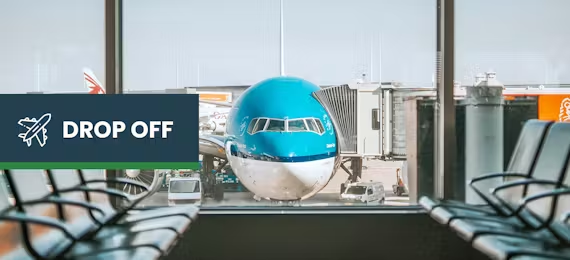
Enjoy a stress free ride from Kandy back to Bandaranaike International Airport arranged by our local team.
Check what's required to visit Sri Lanka
Safety and support
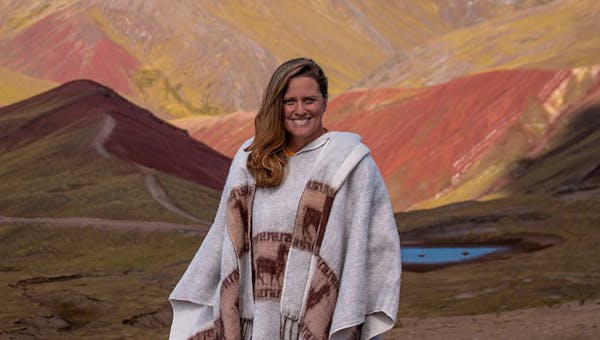
Safety and support
IVHQ follows best practice and industry-leading health and safety procedures, which are regularly reviewed and optimized as part of the B Corporation recertification.
- All volunteers encouraged to complete our interactive pre-departure training.
- All local teams trained on best practice volunteer management & First Aid.
- All IVHQ programs are required to adhere to IVHQ's Risk Management Policy.
- All volunteers have access to 24/7 in-country support from our local team.
Essential country information
Essential country information
| Capital | Sri Jayawardenapura Kotte |
| Population | 21.8 million |
| Languages | Sinhala and Tamil |
| Currency | Sri Lankan Rupee (LKR) |
| Time zone | UTC+05:30 |
Weather and climate
The climate is tropical and warm, due to the moderating effects of ocean winds. Mean temperature ranges from 17°C (62.6°F) in the central highlands, where frost may occur for several days in the winter, to a maximum of 33 °C (91.4°F) in other low-altitude areas.
What recent volunteers said about their IVHQ experience
Do not hesitate to join this program! Everyone in Sri Lanka was so nice, welcoming, and friendly. I always felt safe and comfortable there. Make sure to do the week long introduction if you are able. I got to experience a lot of the culture that I wouldn't have been able to otherwise. It was amazing to volunteer on the sea turtle conservation project. They do a lot of good work for the sick and injured sea turtles. The locals also care for a lot of the stray dogs and cats as well. It was nice to be around so many people who cared for animals. I highly recommend the Sri Lanka program. I was there for 3 weeks and was not ready to leave!
I learned so much about Sri Lankan culture on this project. The introduction week was amazing and jam-packed with activities. The volunteering itself was life-changing for me, it was heartwarming to work with such gentle creatures, and a truly humbling experience. We mainly worked towards short-term goals like turtle feeding, cleaning of the tanks and tidying of the site of the sanctuary and neighboring beach. As far as I could tell this was a very ethical volunteering project, the care for the turtles was excellent, and besides us volunteering at the shelter it was not open for tourists or visitors. I have seen some other turtle sanctuaries in the area that were very tourist-oriented and put the health of the turtles second (e.g. hatchling releasing in the middle of the day, people wearing sunscreen touching the turtles, etc.) this place was much more authentic and put turtle care at the highest priority. I would recommend this project to anyone.
I feel I have gained a greater perspective on life and found a way to travel that allows me to explore new places and cultures as well as make an impact on the community I am visiting, making the overall trip very satisfying. While the food and accommodation may different to that at home, it was such a great authentic experience which wouldn't necessarily get from staying at a hotel in a touristy place.
To read all reviews, visit our reviews page.
